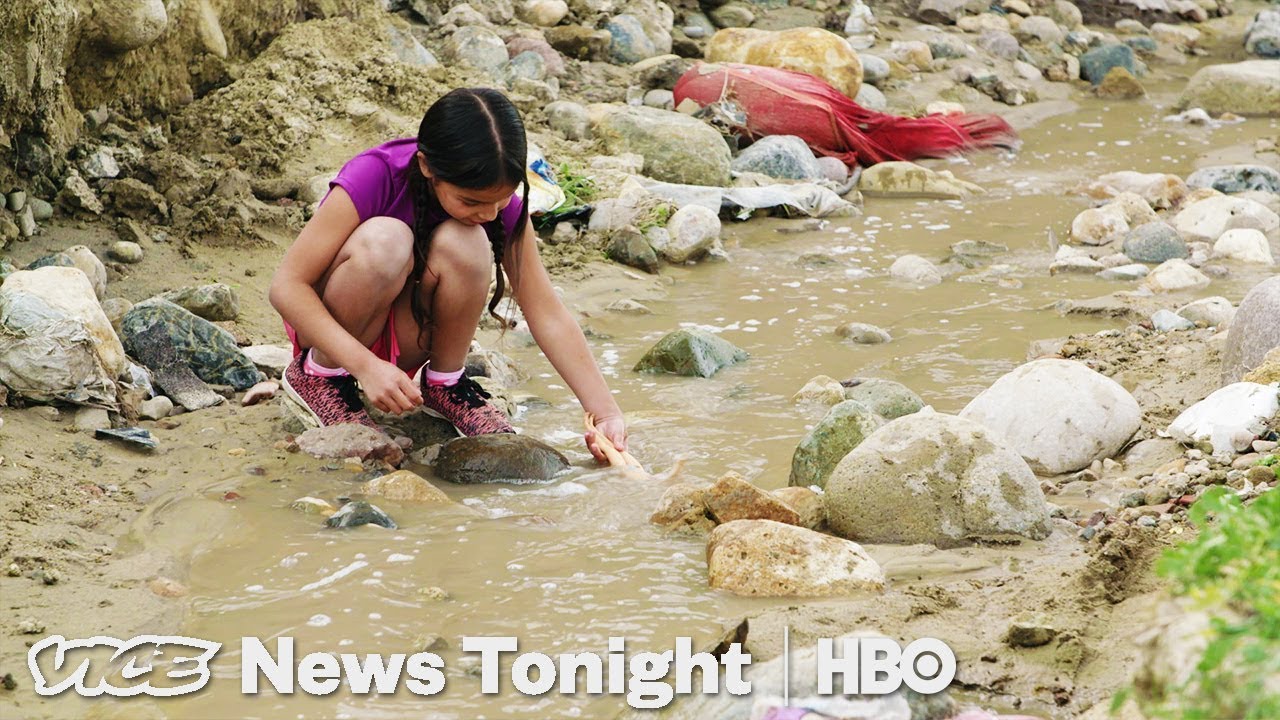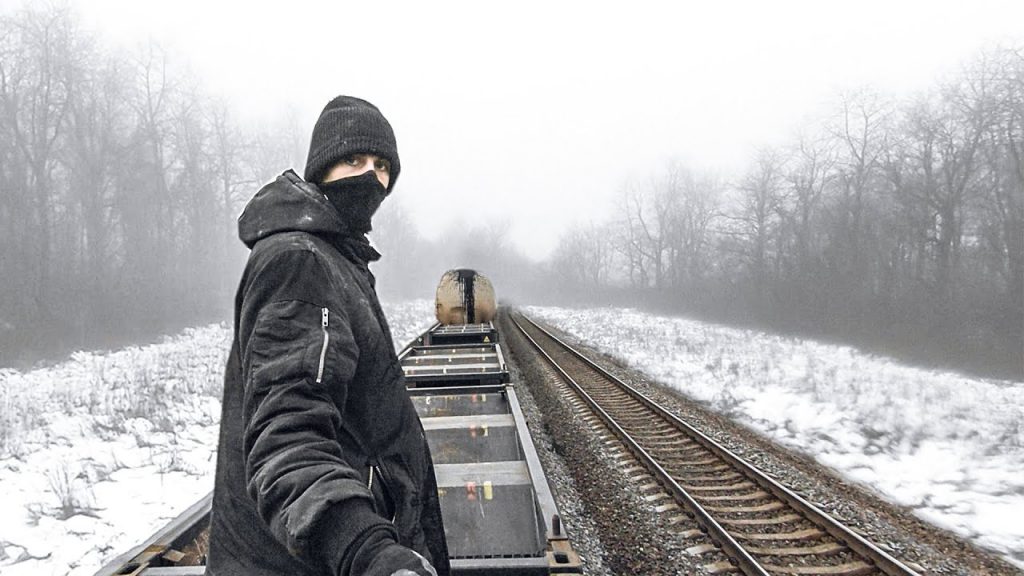There’s A Poop Crisis At The Border

“I’m starting to smell it” Baron Partlow yelled into the estuary that sits between Tijuana and Imperial Beach, a small coastal town in southern California.
He was wearing a black shirt with the words “Stop the Poop” in large white letters, high top boots, and plastic gloves, and carrying a respirator.
After a few seconds, he turned to the woman following him around with iPhone and asked if she was smelling it too. She was wearing Nikes.
Partlow, who documents the wastewater that flows from Mexico the United States and then posts the videos to the Stop the Poop page on Facebook, is on the fringe of a very real and serious movement. While the federal government obsesses about the so-called emergency at the border, Imperial Beach are trying to get people to care about a crisis that has nothing to do with migrants.
Every year, the Tijuana River carries millions of gallons of water over the border, bringing trash, chemicals, and poop along for the ride. The problem has gotten so bad that the beaches just north of Mexico are rarely ever open.
Why has the US government not allocated enough money to address the poop crisis at the border?
As the world grapples with a global pandemic and political unrest, another crisis has emerged at the United States-Mexico border: a poop crisis.
Human waste is piling up in areas along the border, particularly in places where migrants are forced to wait for days or even weeks for the chance to apply for asylum. The situation has become so dire that some health experts are warning of a potential public health emergency.
The problem is not new, but it has escalated in recent years as the Trump administration has implemented policies that have resulted in larger numbers of migrants being held in detention facilities or forced to wait at ports of entry. With limited access to bathrooms and facilities for disposing of waste, many migrants are left with no other option than to relieve themselves in public areas or makeshift encampments.
The result is a toxic mix of feces and urine that poses a serious health risk to both migrants and the surrounding environment. Diseases such as tuberculosis, cholera, and hepatitis A can be spread through contact with fecal matter, while the smell and unsanitary conditions can attract disease-carrying insects and rodents.
The crisis has been exacerbated by a lack of funding and resources. So far, the government has not allocated enough money to address the problem, and border towns and nonprofits are struggling to provide basic services to the growing number of migrants in need.
Despite the severity of the crisis, there are signs that it is being overlooked by authorities. During a recent visit to the border by members of Congress, a Customs and Border Patrol official downplayed the issue, stating that the agency had not received any complaints of public defecation.
Meanwhile, health experts are urging action before the situation worsens. They have called for increased funding for sanitation facilities and for more humane policies that would limit the need for migrants to spend long periods of time in border facilities.
In a time of crisis, it is vital to address all threats, including those that are less visible or politically charged. The poop crisis at the border demands immediate attention and action, not only to protect the health of migrants but to safeguard the wellbeing of the wider community.









Why Dubai’s Man-Made Islands Are Still Empty
This Dishwasher Charges $60K to Design Custom Guns
Beautiful Tiny Turf House in Iceland – Full Tour & Interview
Escaping the Rent Trap – Simple Living In A Lotus Belle Tent
I’m Coming Out | Diana Ross | funk cover ft. Kenton Chen